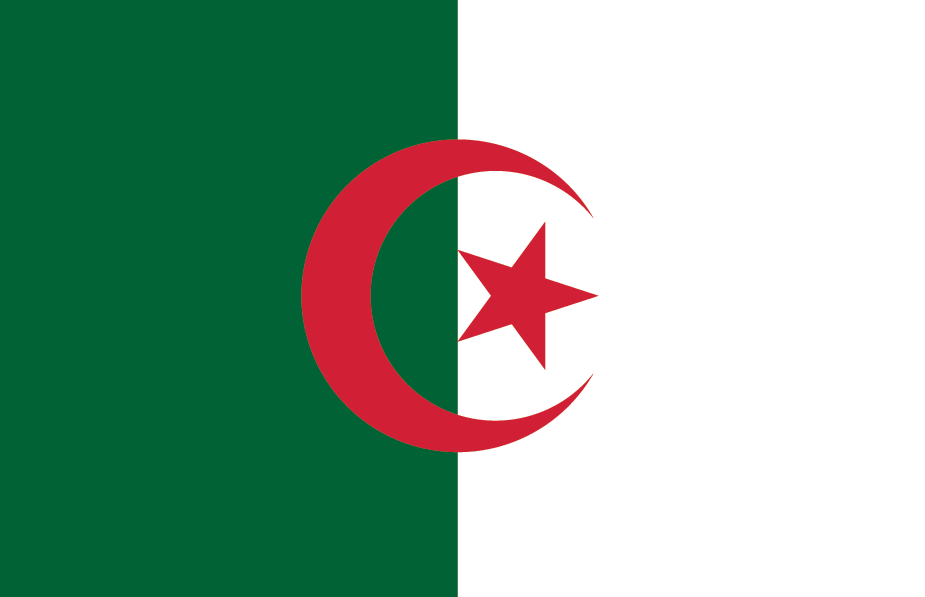
Sustainability Efforts
Country: Algeria
Explore sustainability efforts in Algeria. The United States Environmental Protection Agency (“EPA”) said it well when they state:
“Sustainability is based on a simple principle: Everything that we need for our survival and well-being depends, either directly or indirectly, on our natural environment. To pursue sustainability is to create and maintain the conditions under which humans and nature can exist in productive harmony to support present and future generations.”
About Algeria
Algeria, the largest country in Africa, enthralls with its vast landscapes and diverse cultural tapestry. From the golden sands of the Sahara Desert to the rugged Atlas Mountains, nature’s grandeur is on full display. Algerian cities like Algiers blend modernity with a rich history reflected in ancient ruins, Ottoman architecture, and bustling markets. Its cultural heritage draws from Arab, Amazigh, and French influences, resulting in a captivating fusion of traditions, music, and cuisine. The warmth of its people and the allure of its historical sites, such as Timgad and Djemila, make Algeria an enchanting destination for intrepid travelers seeking both natural wonders and cultural treasures. Sustainability efforts in Algeria will enhance the country’s future.
Sustainability Efforts
Toggle each button below to “open” and “close” the presented data.

Poverty: Algeria has implemented social welfare programs to combat poverty. These include cash transfer programs such as the National Solidarity Income (SNS) and the Solidarity Fund for Housing. However, specific poverty statistics are not readily available.

Hunger: Algeria has made progress in reducing hunger. The country has implemented agricultural and rural development programs to improve food security. According to the Food and Agriculture Organization (FAO), the prevalence of undernourishment in Algeria was estimated at 2.6% in 2019.

Healthcare: Algeria has been working to improve healthcare services. The government has invested in healthcare infrastructure, increased the number of healthcare professionals, and expanded health coverage. In 2019, there were approximately 7.8 doctors per 10,000 people in Algeria.

Education: Algeria has made significant efforts to improve access to education. The country has increased school enrollment rates and invested in educational infrastructure. The gross enrollment rate in primary education was 97.4% for both boys and girls in 2018.

Gender equality: Algeria has taken steps to promote gender equality. The country has implemented legislation to ensure equal rights and opportunities for women, including laws against gender-based violence. However, gender equality rankings and specific statistics are not readily available.

Clean water and sanitation: Algeria has been investing in water and sanitation infrastructure. The government has implemented projects to improve access to clean water and sanitation facilities in both urban and rural areas. According to UNICEF, 87% of the Algerian population had access to improved drinking water sources in 2017.

Affordable clean energy: Algeria has been utilizing its renewable energy potential, particularly solar and wind power. The country has set targets to increase the share of renewable energy in its energy mix. In 2019, renewable energy accounted for about 5% of Algeria's electricity production.

Economic growth: Algeria has been focusing on economic diversification and private sector development to drive economic growth. The government has implemented reforms to attract foreign investment and stimulate non-oil sectors. In recent years, Algeria's GDP growth has been modest.

Industry innovation: Algeria has been promoting innovation and entrepreneurship through various initiatives. The government has established research and development centers, innovation funds, and startup incubators to foster innovation and industrial growth.

Reduced inequalities: Algeria has implemented policies to reduce inequalities, particularly in access to services and regional disparities. Efforts have been made to improve infrastructure, healthcare, and education in less-developed areas.

Sustainable cities: Algeria is working towards sustainable urban development. Initiatives include improving public transportation, implementing waste management systems, and promoting energy-efficient buildings. Specific statistics on sustainable cities are not readily available.

Responsible consumption and production: Algeria has implemented measures to promote responsible consumption and production patterns. The country has implemented waste management and recycling programs to reduce environmental impact.

Climate action: Algeria has been focusing on climate change mitigation and adaptation. The country has set targets to reduce greenhouse gas emissions and increase the share of renewable energy. Algeria has also participated in international climate agreements and initiatives.

Aquatic environment and nature environment: Algeria has implemented measures to protect its aquatic and natural environments. The country has established marine protected areas, conservation projects, and wildlife reserves to preserve biodiversity and ecosystems.

Peace and justice institutions: Algeria has been working to strengthen its peace and justice institutions. The government has implemented reforms to enhance the rule of law, promote human rights, and combat corruption. Specific statistics on peace and justice institutions are not readily available.

Partnerships for the goals: Algeria recognizes the importance of partnerships to achieve the SDGs. The country actively engages with international organizations, regional partners, and civil society to foster collaboration and achieve common goals.

Mickey Mouse.



